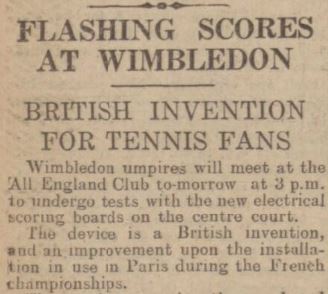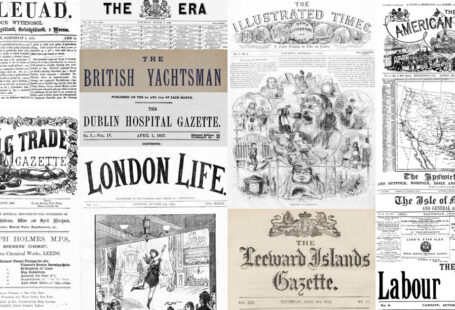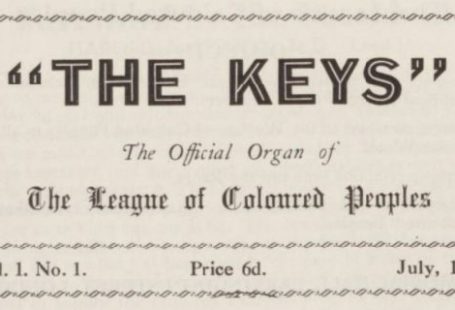
Suzie Grogan used The British Newspaper Archive extensively while researching her book, Shell Shocked Britain: The First World War’s legacy for Britain’s mental health.
She got in touch to show us the heart-breaking story she found about her own ancestors and some of the terrible accounts about life during World War One.
**************
My book is the product of two years of intensive research into the trauma of the Great War and its aftermath. But it was a chance find during some family history research in The British Newspaper Archive that was the inspiration for the book.
A shocking family tragedy
My great-uncle Alfred Hardiman had killed his ex-girlfriend by cutting her throat, and then turned the razor on himself, dying with her in a pool of blood on the floor of the family home in North London. The main witness at the inquest, the newspaper report made clear, was my grandmother, Bessie Hardiman, Alfred’s sister.

Dundee Courier – Thursday 04 January 1923
Image © D.C.Thomson & Co. Ltd. Image created courtesy of THE BRITISH LIBRARY BOARD.
View the whole newspaper page
My mother confirmed that this event had never been mentioned, despite the fact that the family remained in the same home for more than 25 years after the event. The coroner had heard that Alfred had been discharged unfit from the army having been involved in one of the air raids on London in 1916 and ‘was never the same since’.
As a writer and researcher on the subject of mental health, and a keen social historian, I wanted to find out more. How far was the nation as a whole ‘shell shocked’ by the impact of the conflict on a generation of men, women and children, for whom unspeakable horrors, grief, loss and anxiety were the norm? Could we come closer to understanding the day to day lives of those for whom four years of war resulted in a society changed forever?
Terrible scenes described in WW1 newspapers
To look at the stress of war through fresh eyes I turned to the reports and editorial columns of the newspapers of the time.
When Gotha airplanes dropped bombs on the South Coast and on London in the summer of 1917, the horrors could not be hidden. These were the first daylight raids, causing significant numbers of casualties and damage to property and infrastructure. I found pages dedicated to the stories of the children killed at Upper North Street school in Poplar; grisly descriptions of the deaths around Liverpool Street Station. One report graphically described the dismemberment of a delivery boy, another the decapitation of a caretaker’s wife.

Taunton Courier, and Western Advertiser – Wednesday 20 June 1917
Image © Local World Limited. Image created courtesy of THE BRITISH LIBRARY BOARD.
View the whole newspaper page
Other events are also described vividly, and offered me fascinating insights into the mind of the nation. Reports of theatres, cinemas and churches closing their doors to prevent spread of the Spanish influenza outbreak in 1918 sat alongside various home remedies; there was no cure but brands such as Oxo and Bovril offered to build the nation’s strength once more.
‘Talking therapies’ in post-war Britain
Some of the most fascinating pieces came to light as I researched post-war attitudes to psychotherapy. New ‘talking therapies’ were popular, particularly among the middle-classes. Many, particularly women, were vilified by correspondents who felt they had lost the backbone of their pre-war counterparts. In 1928, the Nottingham Evening Post ran a lengthy piece by a writer calling themselves ‘A Masseuse’, under the headline ‘Nerves’:
‘Most of the patients I see for soothing massage to steady exhausted, frayed, irritable nerves are those whose greatest exercise is dancing; who rise when others have done half a day’s work; who have an aspirin and a cup of tea instead of a proper lunch, who spend the golden afternoon with their backs to the a roaring fire playing bridge or poker. ‘

Nottingham Evening Post – Saturday 29 December 1928
Image © Local World Limited. Image created courtesy of THE BRITISH LIBRARY BOARD.
View the whole newspaper page
The British Newspaper Archive has offered, in its own way, the clearest picture of life during and after the First World War. Shell Shocked Britain would be a less interesting book had such a wide variety of sources not be available to me.
**************
You can buy a copy of Shell Shocked Britain by Suzie Grogan from Pen & Sword Books.





